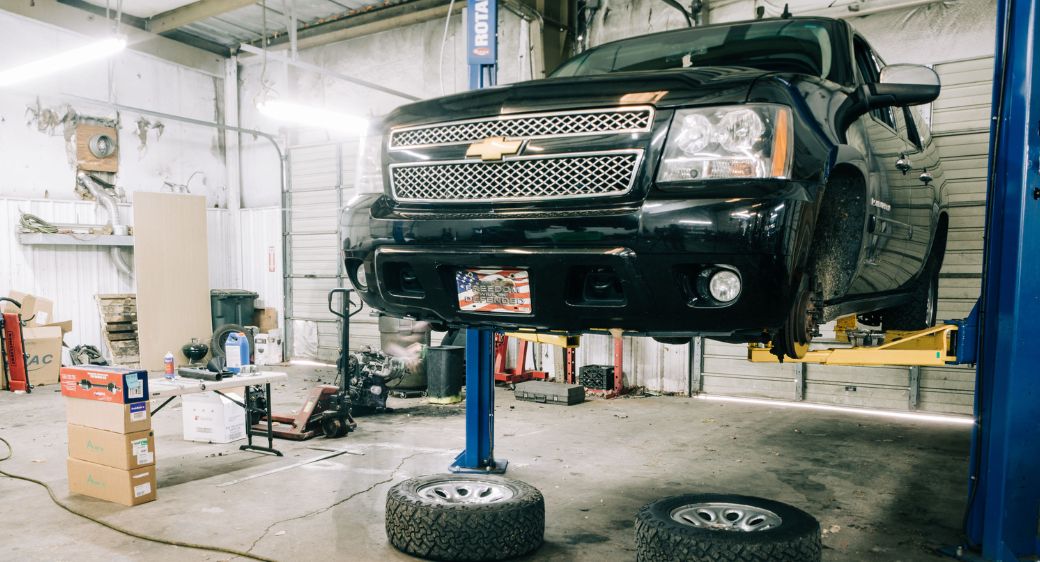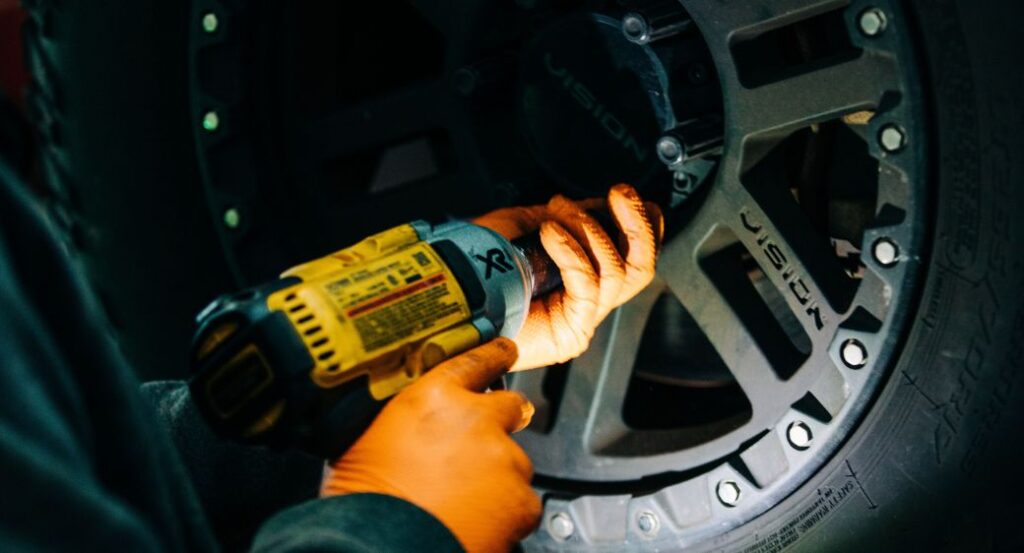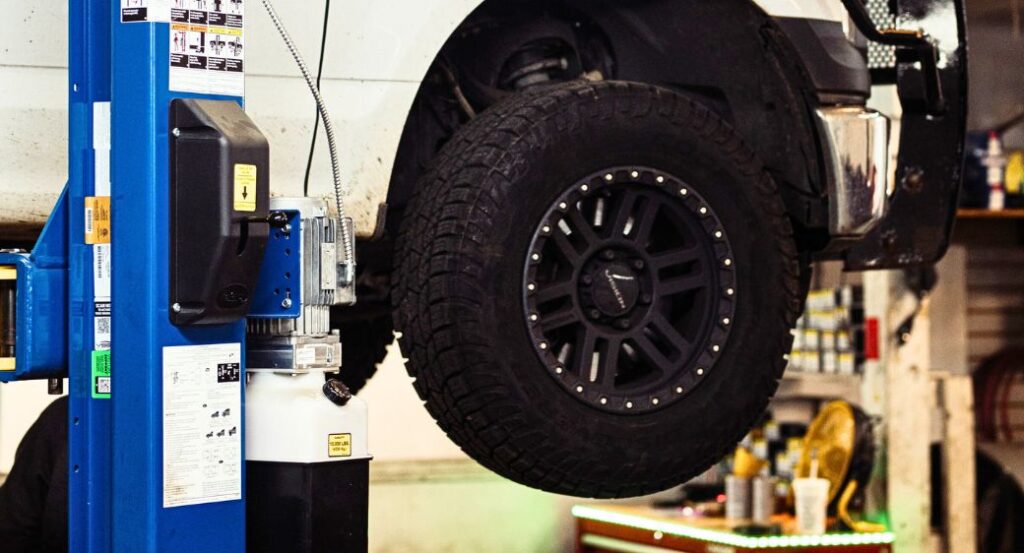How Long Do Brakes Last?

Sharing this:
Brake components are essential for helping your vehicle stop effectively. Without a quality braking system, you risk your safety and the safety of others on the road. How long do these components last, and what should you be looking out for? We’ll explore the lifespan of brake components, factors that influence how long they last, and tips for maintaining them. Whether you’re a seasoned motorist or a new driver, this comprehensive guide will provide valuable insights into your vehicle’s braking system.
Brake Pads
Brake pads are some of the most critical components in your vehicle’s braking system. They press against the brake rotors to create friction and slow or stop your car. Typically, brake pads last around 30,000–70,000 miles, but this range can vary depending on driving conditions and your habits behind the wheel. For instance, frequent stop-and-go traffic, aggressive driving, and carrying heavy loads can contribute to a shorter lifespan for your brake pads. It’s not just the distance traveled that affects them; the manner and conditions under which you drive also play a significant role.
Regular inspections by a professional mechanic and timely replacements are essential to maintain optimal brake performance and ensure your vehicle remains safe and reliable on the road. Neglecting brake pad maintenance can reduce braking efficiency, increase stopping distances, and create dangerous driving situations.
Brake Rotors
Brake rotors, or discs, are essential parts of a vehicle’s braking system. Rotors typically have a longer lifespan than brake pads, generally lasting 50,000–70,000 miles under normal driving conditions. However, your braking habits, the environmental conditions in which you drive, and the quality and material of the rotors can affect their lifespan.
Frequent hard braking or driving in mountainous regions can cause the rotors to wear out quickly. Monitor the condition of the rotors, as warped or excessively worn components can compromise braking efficiency. Replace degraded brake discs promptly to restore the braking system.

Brake Calipers
Brake calipers clamp the brake pads against the rotors, generating the necessary friction to halt the vehicle. Designed to outlast both brake pads and rotors, calipers can reach a lifespan of up to 100,000 miles! Nonetheless, they are not immune to wear and tear. Over time, calipers may experience sticking or seizing, especially if you drive in harsh weather conditions or they accumulate grime from the road. Regular inspections and maintenance can extend their operational life and prevent unexpected failures.
Brake Lines
Brake lines transport brake fluid from the master cylinder to each wheel’s brake mechanism. Brake lines usually consist of steel or braided stainless steel, and they last throughout the vehicle’s lifetime with regular maintenance. However, they are susceptible to corrosion, cracks, or leaks from exposure to road salt, debris, and fluctuating temperatures.
Routinely check for damage or deterioration. Compromised brake lines can result in brake fluid loss and reduced braking performance, necessitating immediate replacement to function safely.
Brake Fluid
Brake fluid is key in transferring the force from your brake pedal to the brakes themselves. This hydraulic fluid ensures that the pressure is evenly distributed to all brakes when you press the brake pedal, allowing your vehicle to stop smoothly and efficiently. Over time, however, brake fluid can absorb moisture from the environment, leading to reduced effectiveness. This absorption can lower the fluid’s boiling point, potentially resulting in brake fade or failure, especially under heavy braking conditions. To maintain optimal performance and safety, replacing brake fluid every two to three years or according to your vehicle manufacturer’s guidelines is generally recommended. Regular maintenance helps prevent moisture build-up and ensures that your braking system functions reliably.
Factors Influencing Brake Component Lifespan
Several factors can influence the lifespan of brake components. For example, your driving habits play a significant role. Aggressive driving, frequent braking, and carrying heavy loads can all cause brake system components to wear out quickly. Environmental conditions, such as exposure to road salt, moisture, and fluctuating temperatures, can also affect the longevity of your vehicle’s brake system.
Using high-quality brake components and adhering to regular maintenance schedules can extend the lifespan of your vehicle’s brakes. Regular inspections by a qualified technician can identify potential issues before they worsen and keep your brakes in top condition.

How To Extend the Lifespan of Brake Components
You can employ several strategies to extend the lifespan of your brake components. First, adopt safe driving habits. Avoid aggressive braking and maintain a safe following distance to reduce the need for sudden stops. Additionally, lighten your vehicle’s load when possible, as carrying extra weight can strain your brakes.
Regular maintenance also helps. Schedule routine brake inspections with your mechanic, and replace worn-out components promptly. Using high-quality brake parts and fluids can further enhance the durability and performance of your vehicle’s braking system.
The Role of Quality in Brake Longevity
The quality of components in your car’s brake system determines their lifespan and effectiveness. High-quality brake pads, rotors, and calipers endure wear and tear and consist of superior materials that enhance their durability. These components provide consistent and reliable performance over time, ensuring the safety and efficiency of your vehicle.
By investing in high-quality products from reputable brands, you not only enhance the safety of your driving experience but also save money in the long run. Quality components reduce the frequency of replacements and repairs, minimizing the hassle and cost of maintaining your vehicle’s braking system. Furthermore, superior brake components often come with warranties and support from manufacturers.
Quality should be a top priority for brake longevity. Making informed choices about the brake components in your vehicle can change the performance and lifespan of your vehicle’s braking system for the better!
Conclusion
Understanding the lifespan of brake components and how to maintain them is crucial for ensuring the safety and performance of your vehicle. With these pointers, you can make your brakes last a long time and enjoy a smoother, safer driving experience.
If you’re experiencing any issues with your brakes or it’s been a while since your last inspection, don’t hesitate to contact us. We offer comprehensive car brake repair services to keep your vehicle running smoothly. Contact us today to schedule an appointment and get your brakes in top condition.



